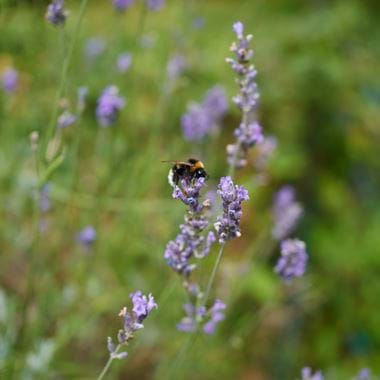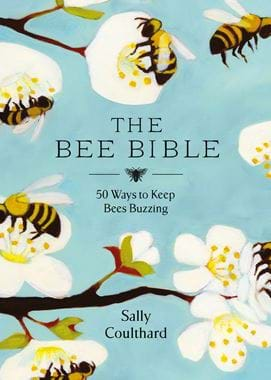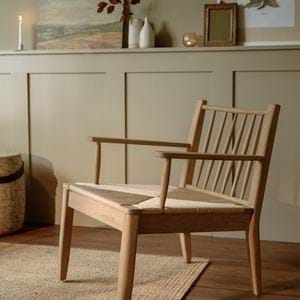For the love of the humble bee
For the love of the humble bee
Over the summer, while our roads and streets fell silent, it wasn’t only the birds whose presence became so much clearer to hear. And even now, in these last hazy days of the warmer months before we head full tilt into autumn, it’s hard not to notice the gentle hum of bees as they go about their business. But, as we all know, bees haven’t had such an easy time of it lately. Author of ‘The Bee Bible’, Stories contributor and Country Living columnist, Sally Coulthard, shares some of the ways bees are all-important to us – not just as a quintessential part of the British summer – and how we can help them along their way.
Bees have seen it all. They’ve watched mighty dinosaurs roam the Earth, kept buzzing through ice age after ice age, and gone about their business as great civilisations rose and fell. They’re quiet survivors, brilliant at adapting to ever-changing circumstances. Bees have colonised almost every corner of the planet – from the Amazonian rainforest to the rolling hills of England – and yet, of the 100 million years since bees evolved from wasps and went their pollen-preferring ways, now is perhaps the most challenging time of all.
Bees are in trouble and they need our help. Despite a surge of interest in beekeeping, there has still been an overall reduction in honeybees over the past half century. Pesticide use, habitat loss and climate change are just a few of the factors making life hard in the hive, but the same conditions cause even more problems for our bumble bees and solitary species. Of nearly three hundred different kinds of wild bee in the UK, a third are in decline.
Bees of all kinds are critical to the success of both people and the planet. They punch well above their weight when it comes to helping humans, pollinating a vast array of our favourite foodstuffs. From almonds to coffee, strawberries to apples – at least a third of all our food is pollinated by bees and other creatures. And while managed bees in hives do some of this work, the lion’s share is still done by wild insects.
Beyond the relationship between bees and farming, many wild plant species depend on pollination by bees. It’s a rich, long-standing mutual relationship. A wide variety of flowers, shrubs and trees can only exist if there is a wide variety of bees; bees come in all shapes and sizes, many with different tongue lengths and plant preferences. If we want our countryside to be filled with a glorious array of different plants, we need different types of bees to pollinate them. Equally, we can only support a wide range of bees if we leave them a varied enough range of plants to choose from.
And while lots of different animals are pollinators (including moths, flies, beetles, bats and butterflies), bees are particularly good at it – the gold medal winners of the pollinator world. This is because both bee larvae and adults rely almost uniquely on pollen and nectar for their food. To get enough to eat, the number of visits bees make to flowers, as well as the distance travelled between flowering plants, is greater than any other kind of pollinating animal.
Happily, there are lots are ways we can help bees, both wild and those kept in hives. Beyond the obvious starting points – such as buying local honey from small-scale, sustainable beekeepers and planting flowers that bees love – there are dozens of less well-known strategies. Buying organic food and cotton – or linen, which needs no chemicals to grow at all – for example, reduces pesticide use. Build your own bee hotel, leave patches of long grass, dig a wild pond, create log piles and a compost heap – all these habitats allow different bees to thrive. Take part in a conservation group’s bee survey, ask your local council to create a ‘pollinator action plan’ or leave a legacy to a bee charity in your will. Learn how to revive bees with sugar water or who to contact if you find a bee swarm. Or, best of all, why not let a beekeeper keep her hive in your back garden? There’s usually a pot or two of delicious honey in it for you, and you’ll be helping our pollinators in the process.
For more ways to help bees, read Sally’s ‘The Bee Bible: 50 Ways to Keep Bees Buzzing’. And, once you’ve picked up a pot of local honey, be sure to look out for our honey-suffused recipe in collaboration with The Provenist later this month.








